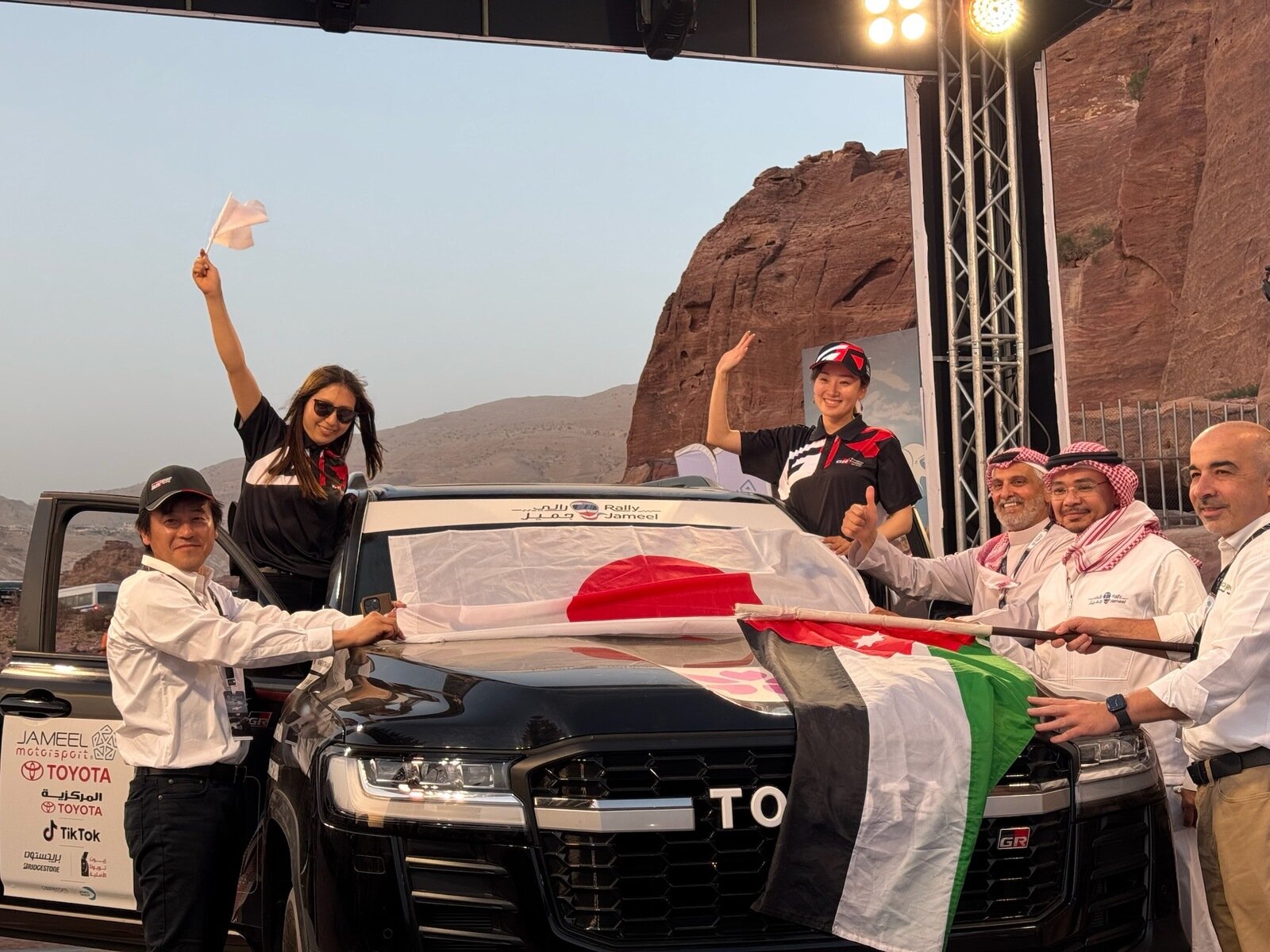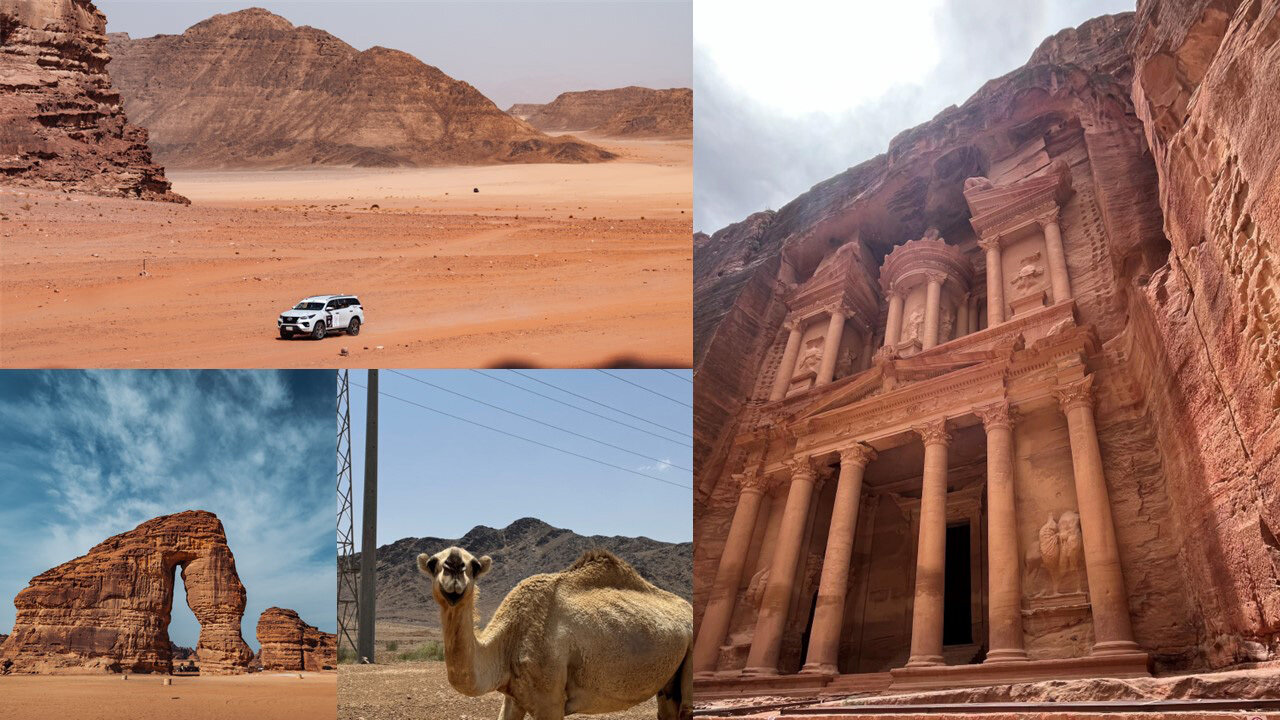
Saudi Arabia was the last country to lift its ban on women drivers. This land of stunning natural beauty is home to the women-only Rally Jameel, and GR staff have taken on the challenge!
Lost in the desert
“We heard that today’s driving was going to be tough, so we’ll try to have some fun while staying safe.”
So began day two for Kitahara and Nagayabu. Indeed, the second day’s course was designed to be more challenging than the previous year. It featured various types of terrain, from steep cliff-like slopes to complex routes. With rocks of all sizes tumbling about, many teams suffered tire punctures. The mental strain proved too much for some drivers, with several handing the reins over to their partners the following day.
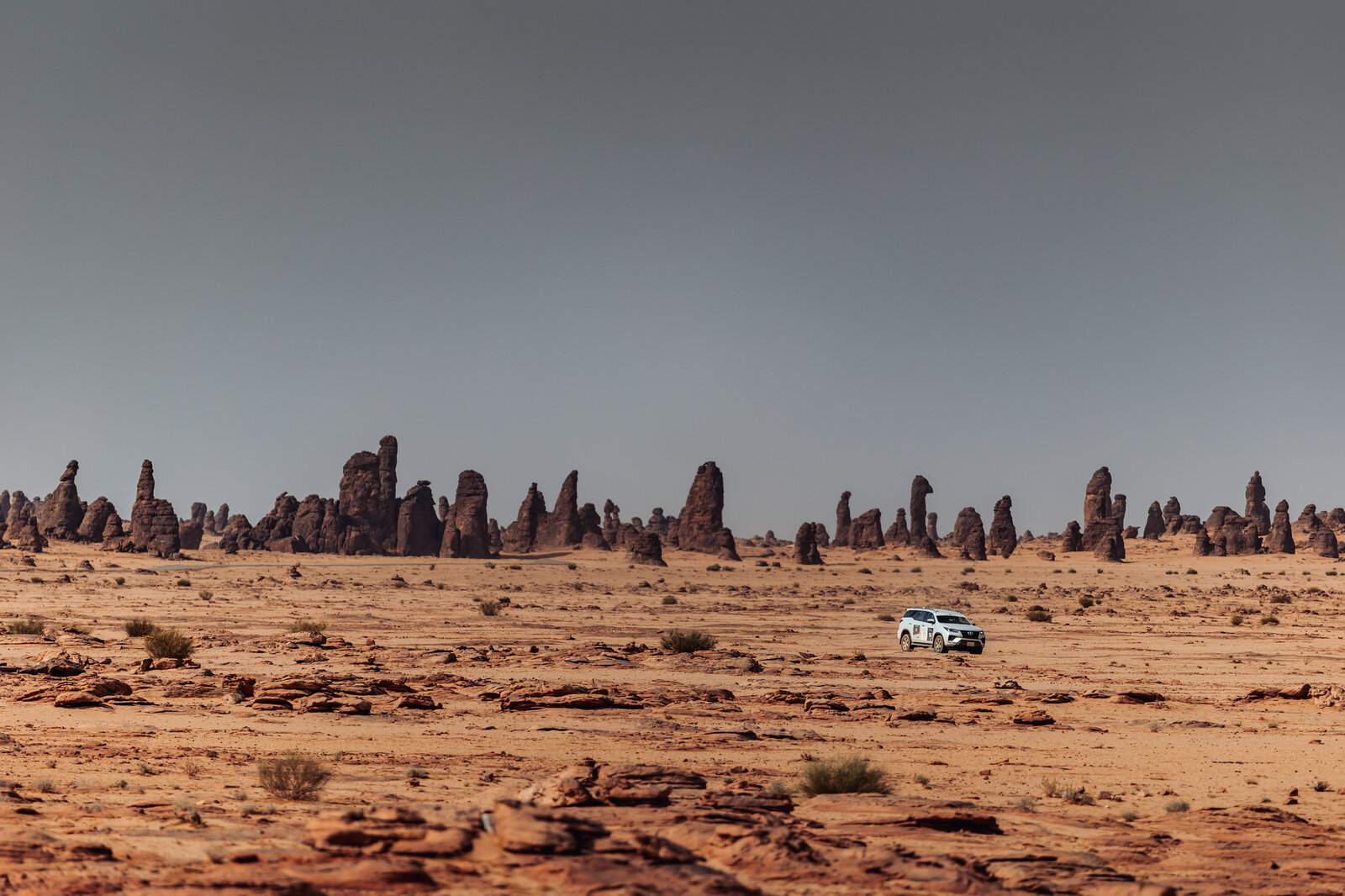
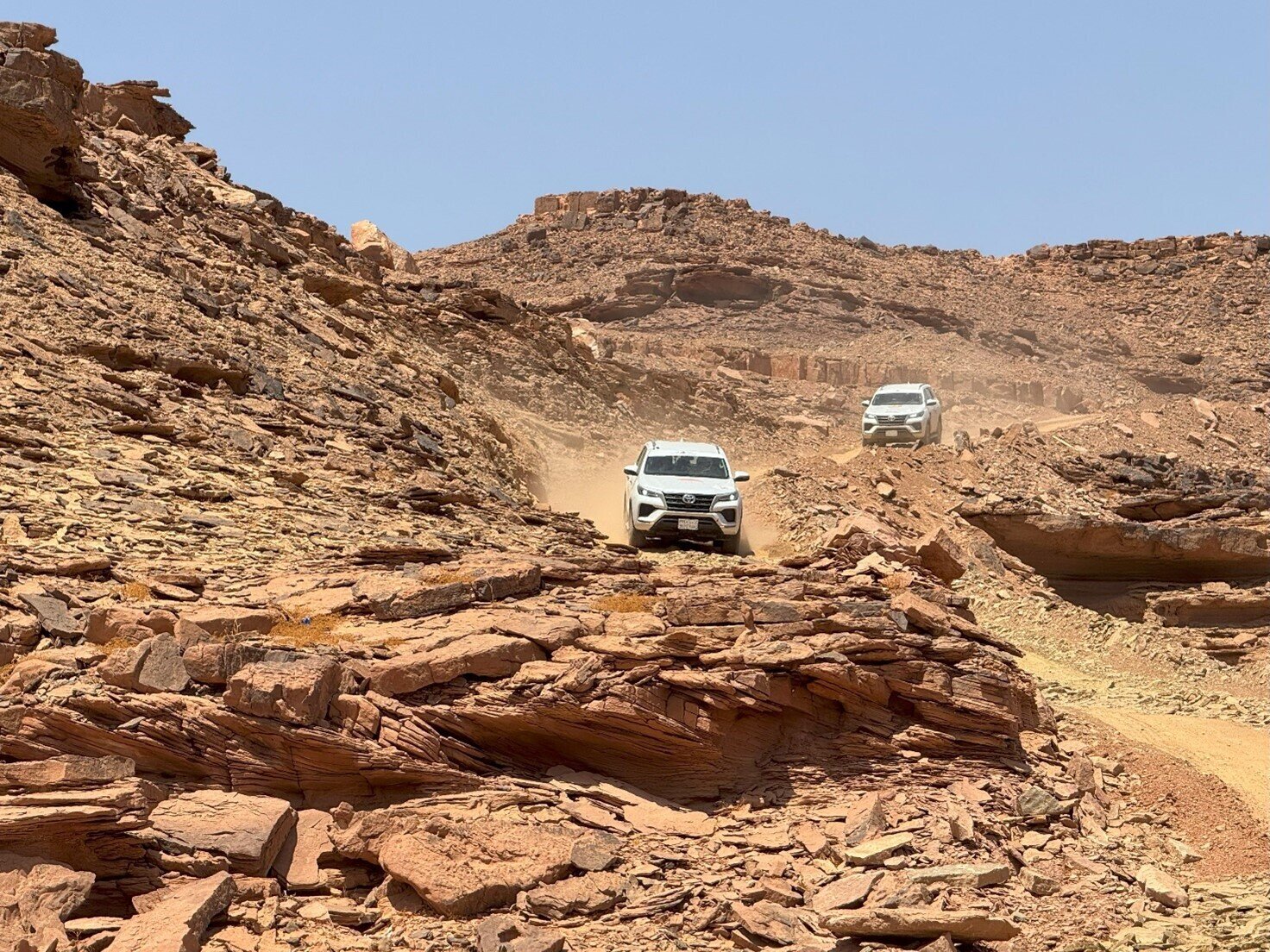
Seven teams were unable to finish and retired from the race. Among them was TGR Sakura Japan, as our duo endured a spectacularly incident-filled day in the desert.
At 4 p.m., seven hours after setting out and with just one hour left to complete the stage, the pair found themselves in a bind. They were completely lost.
With maybe three other cars roaming about in front of them, Kitahara and Nagayabu braced themselves for a difficult area, but unfortunately could not find a way through before time ran out.
Together with another car nearby, they decided to give up and call for rescue.
Unfortunately, they appeared to be out of signal range, as an hour and a half passed without any word. There were no lights in the desert, and getting around only became more difficult after dark. Relying on their roadbook, the pair would try driving for a while, then hop out of the car and walk to a spot where they might get a signal.
Yet no matter how far they traveled, the scenery never changed. There was no reception. Then thankfully, a Bedouin nomad happened to pass by. The driver of the other car that had gotten lost at the same spot was a Saudi woman, and when she asked for help in Arabic, the rider began guiding them to a main road.
Or so they thought... Just when it appeared that they might find a way back, their group arrived at the Bedouin’s home.
“Will you join me for dinner?”
Apparently there had been some miscommunication.
After declining the dinner invitation, Kitahara and Nagayabu were waiting in their car when they finally managed to link up with the rescuers, who brought them to the finish area. With their fuel gauge hovering just above empty and the clock already ticked over to a new day, they had made it back.
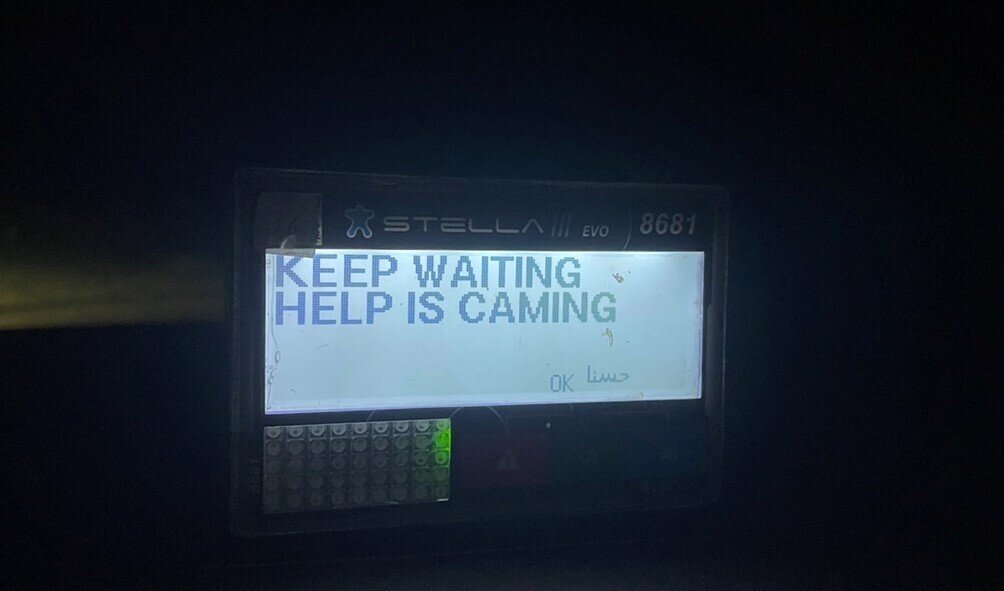
Nagayabu had warned that she might panic if they got lost, and being surrounded by darkness in the vast desert would certainly have been terrifying. And yet, the two women looked oblivious to our worry, as if nothing had happened.
Kitahara: “I was confident that we would make it back. With a Land Cruiser, we could go for it and tackle even the rockiest ground or slopes as steep as cliffs, so I wasn’t afraid.”
Nagayabu: “I was a little scared, but also surprisingly calm. Kitahara remained amazingly chill, and it felt safe being inside the Land Cruiser with her. Watching the desert become gradually enveloped in darkness as the sun sets is not something you get to experience every day, so it was actually quite fascinating (laughs).”
Hardened by their exploits, the pair safely cleared the third and fourth days while battling through the desert’s distinctive rocky terrain. Even a shredded tire left them unfazed, doing what they could on their own while waiting for the rescue to arrive.
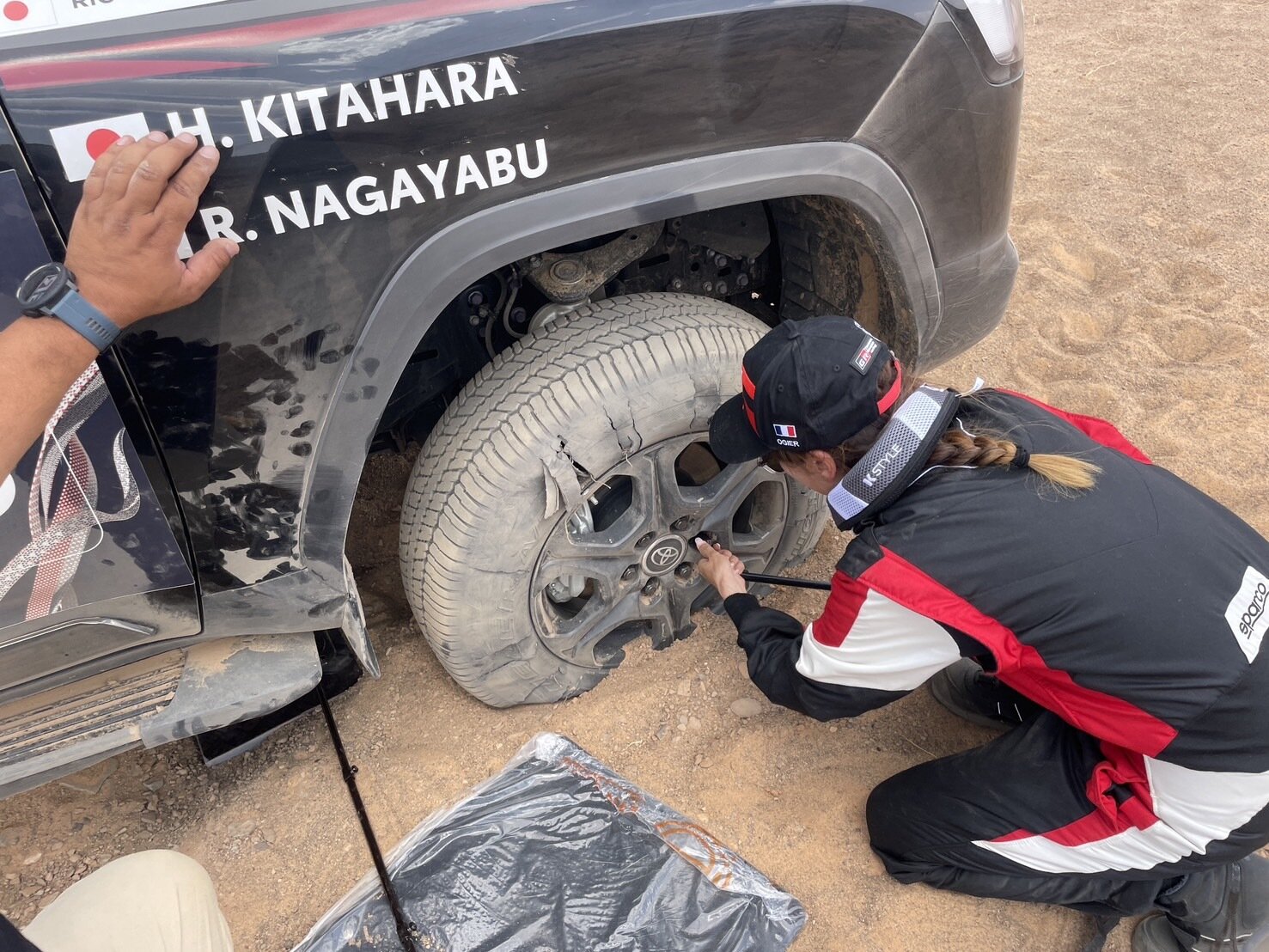
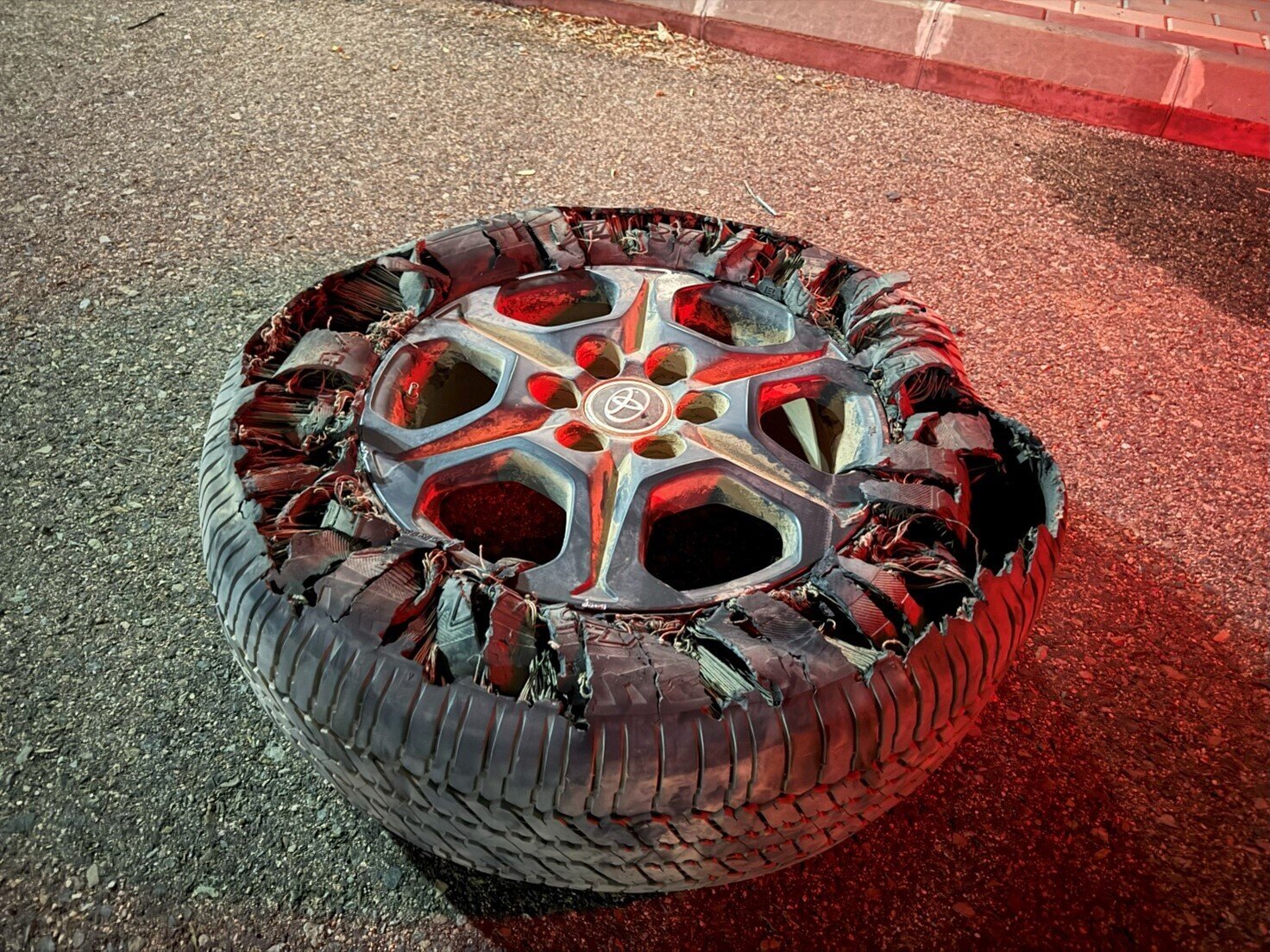
Instead of losing their nerve after spending some eight hours lost in an unfamiliar land—a desert, no less—Kitahara and Nagayabu pressed on to the final day’s finish.
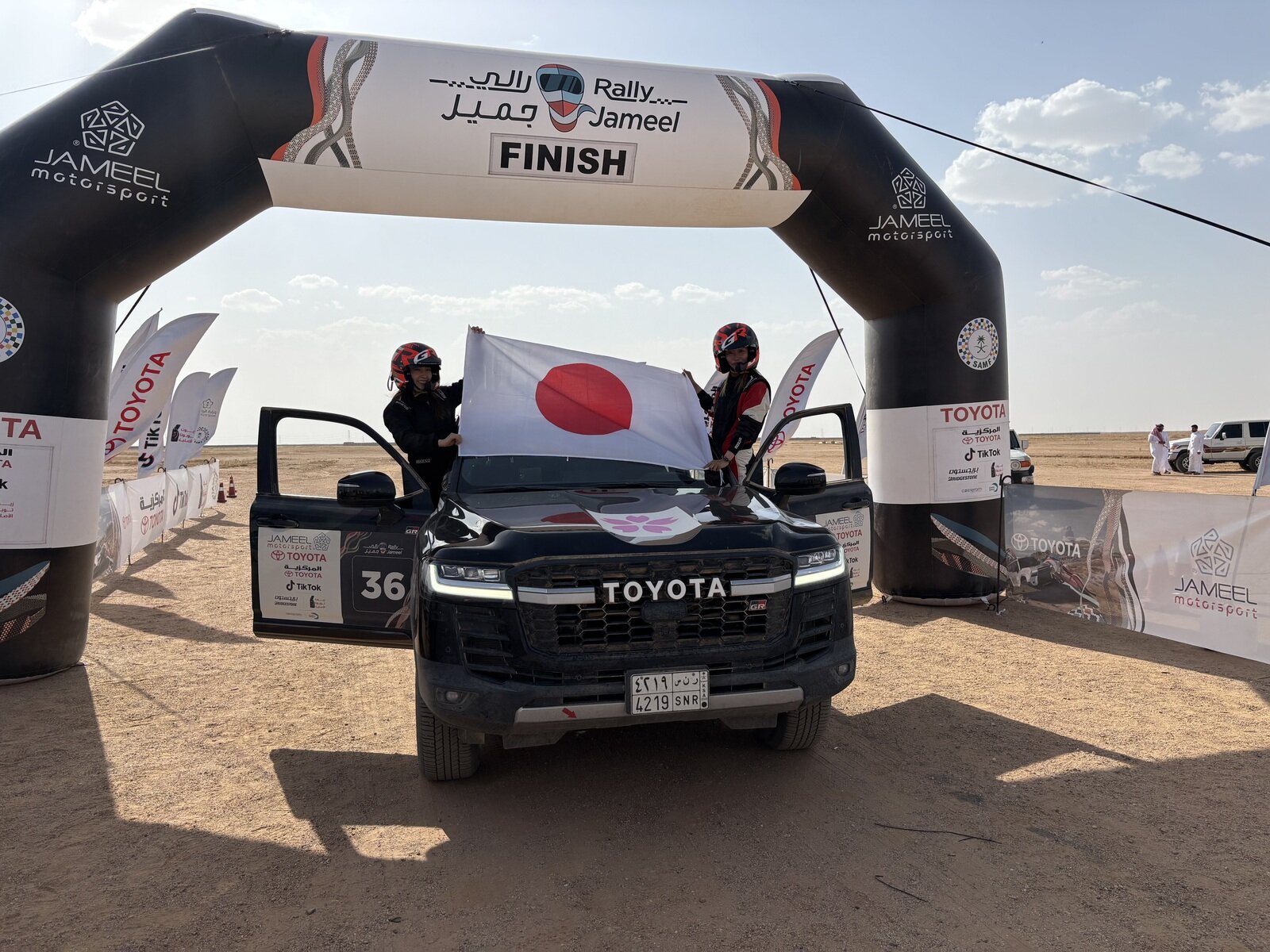
In their own hands
With that, the team’s Rally Jameel challenge drew to a close. TGR Sakura Japan’s ranking: 34th!
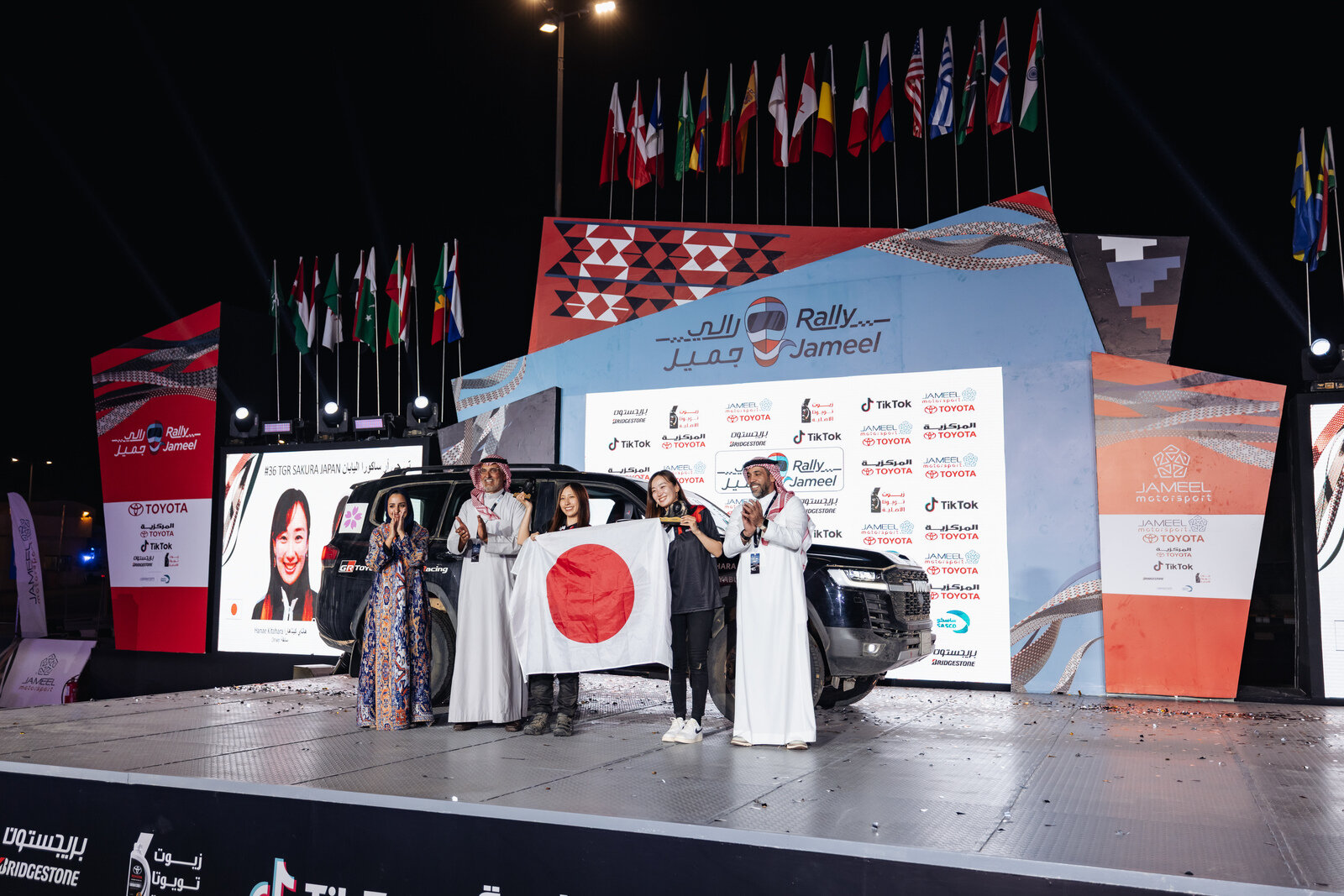
Here are their comments immediately after finishing:
Two satisfied racers. And well they should be—after finishing the first three days in the 30s (32nd, 35th, and 34th), on the fourth day Kitahara and Nagayabu leaped up the leaderboard to an impressive 18th place!
The biggest factor, as Kitahara mentions in the video, was that on the final day, they managed to almost completely avoid any penalties, such as for deviating from the route or exceeding speed limits. Over the course of four days, they no doubt grew used to the conditions and got better at working as a team.
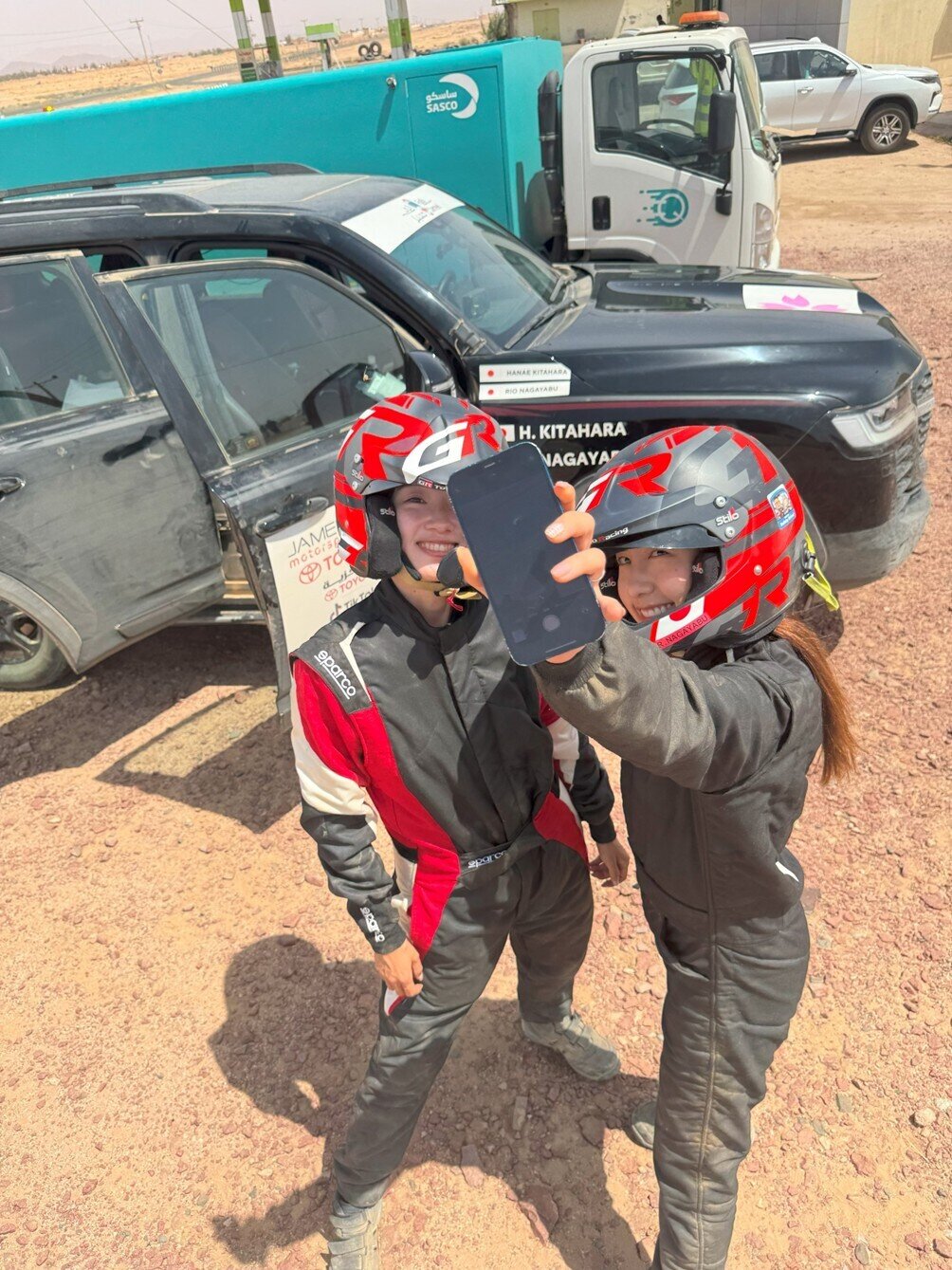
Meanwhile, they were also eager to have another go: “There are so many things we can improve, we’ll definitely do better next time!”
The winning team was comprised of Hanna Riehle, who claimed her third straight title, and Saudi-born Reem Al Aboud, who earned her first victory.
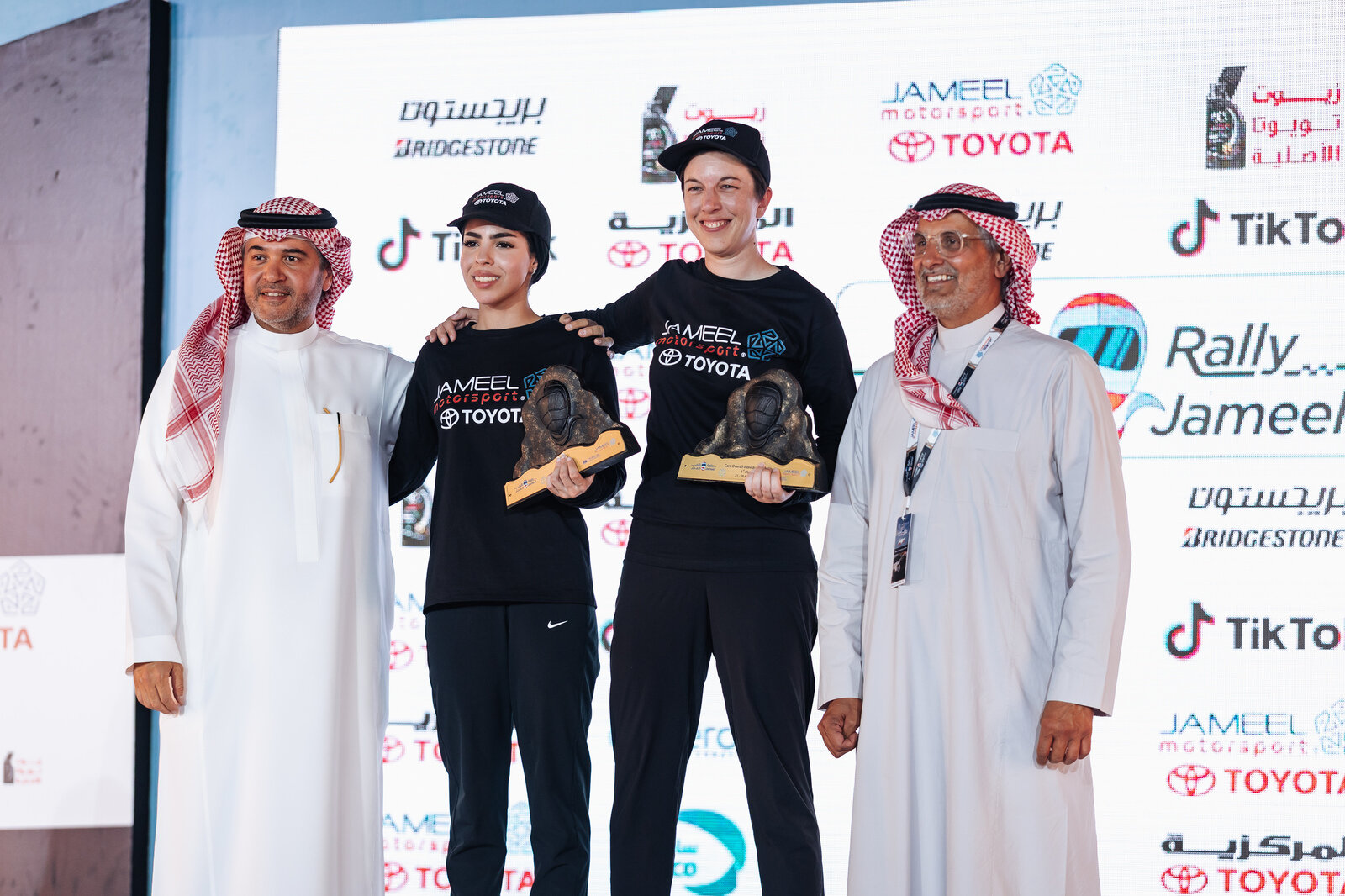
“Motorsport is open to everyone, regardless of gender, so I would like to see more and more women enter this world,” said Hannah, adding with a smile: “For newcomers, I recommend Rally Jameel as a great entry-level challenge.”
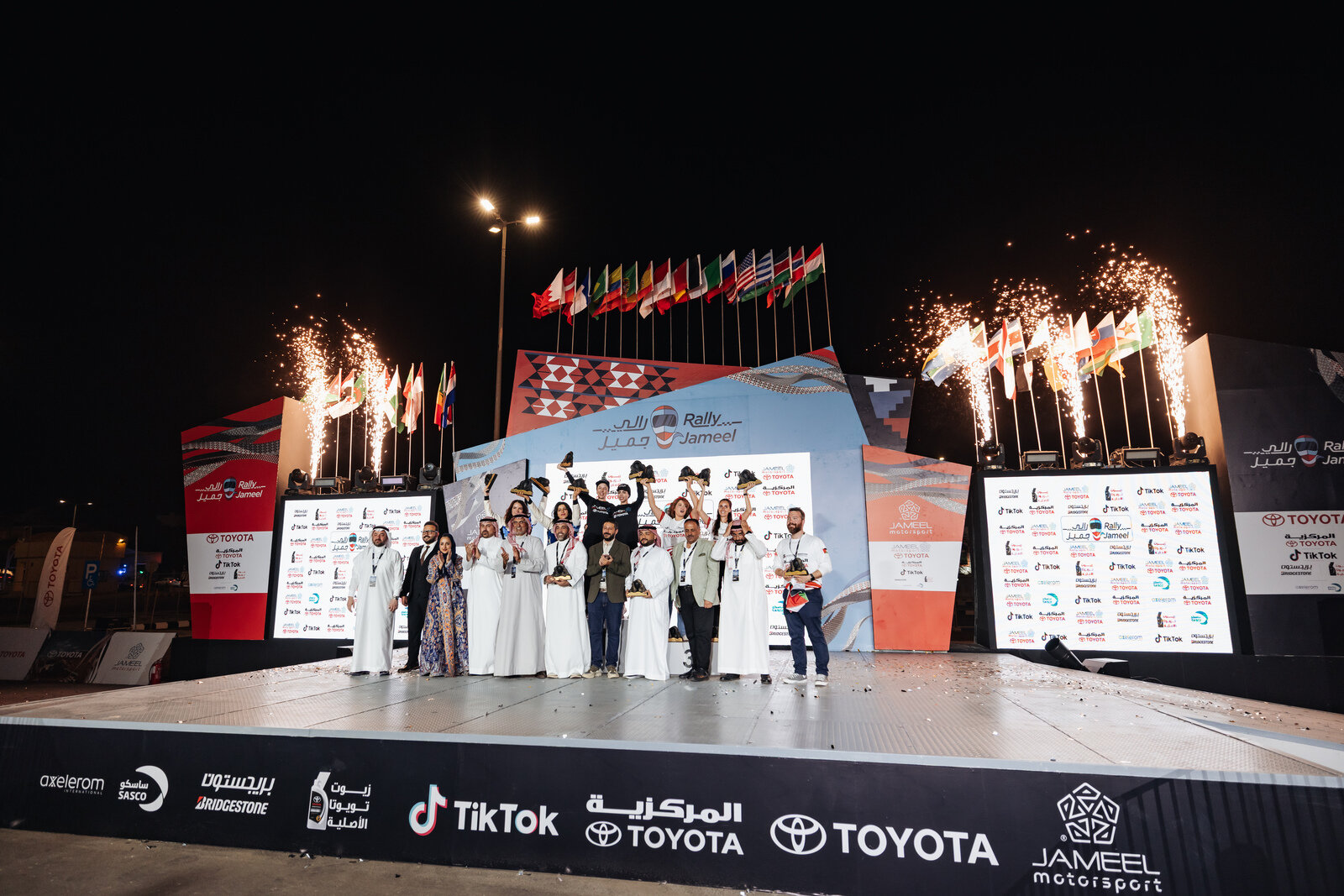
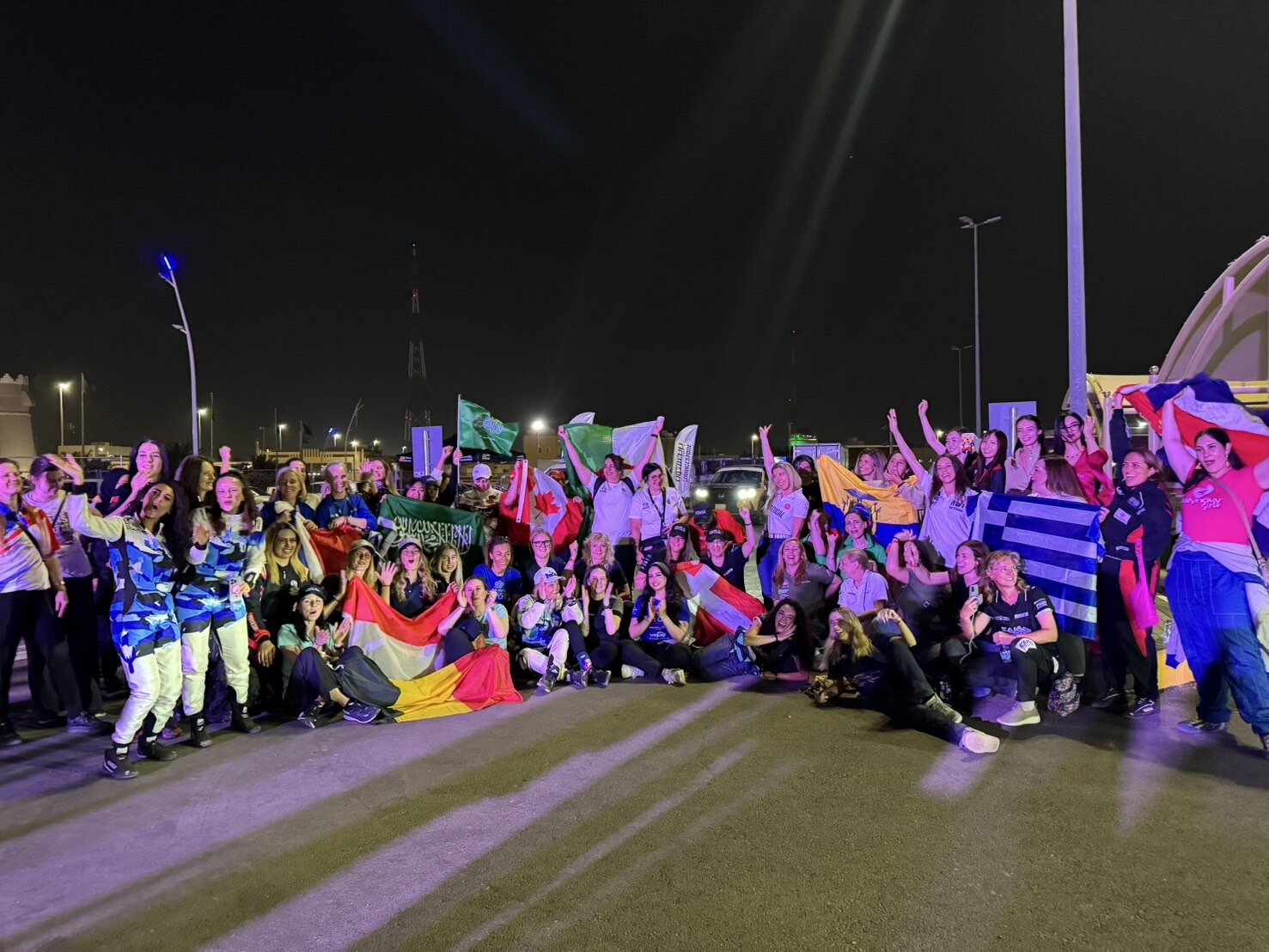
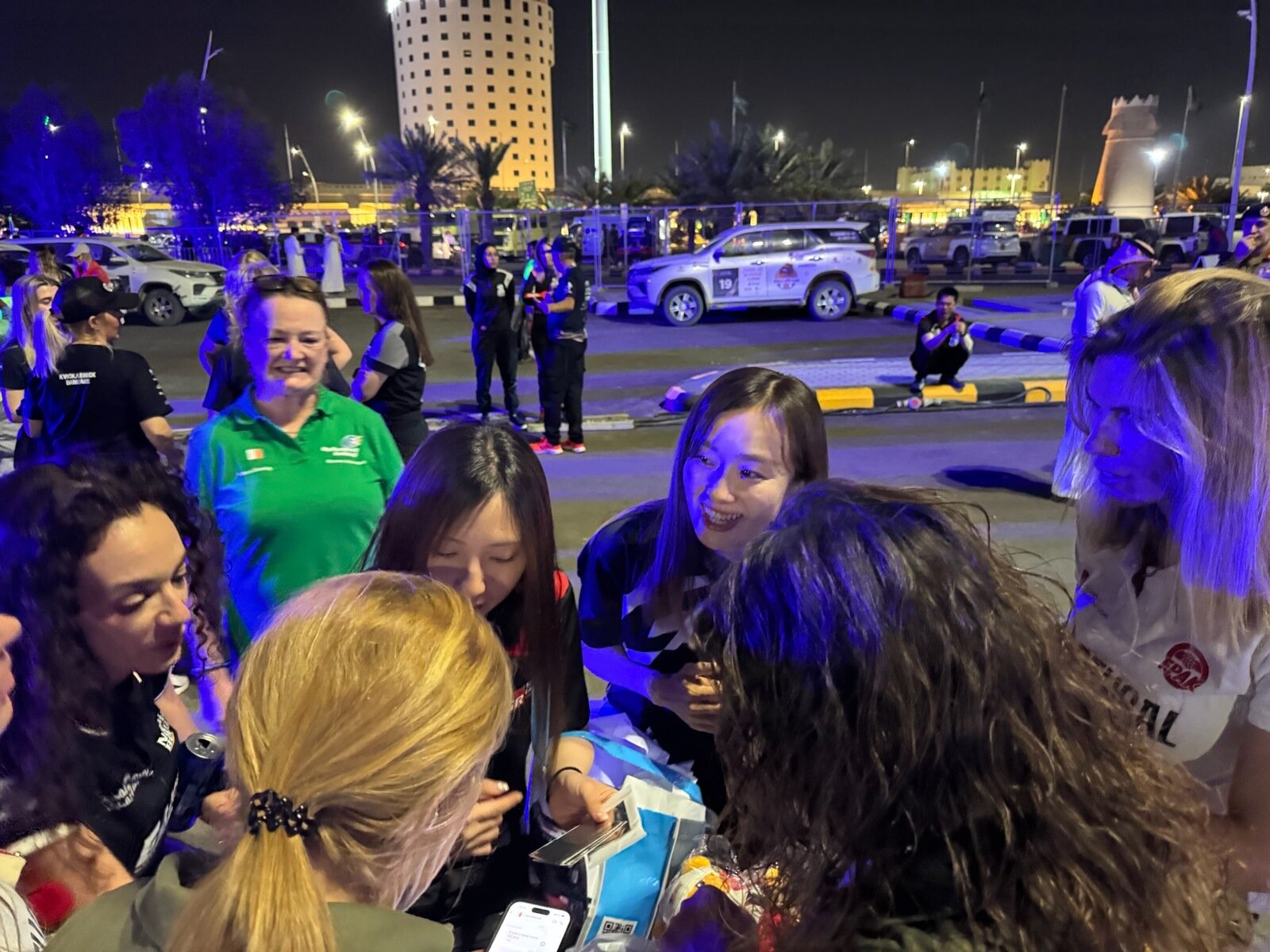
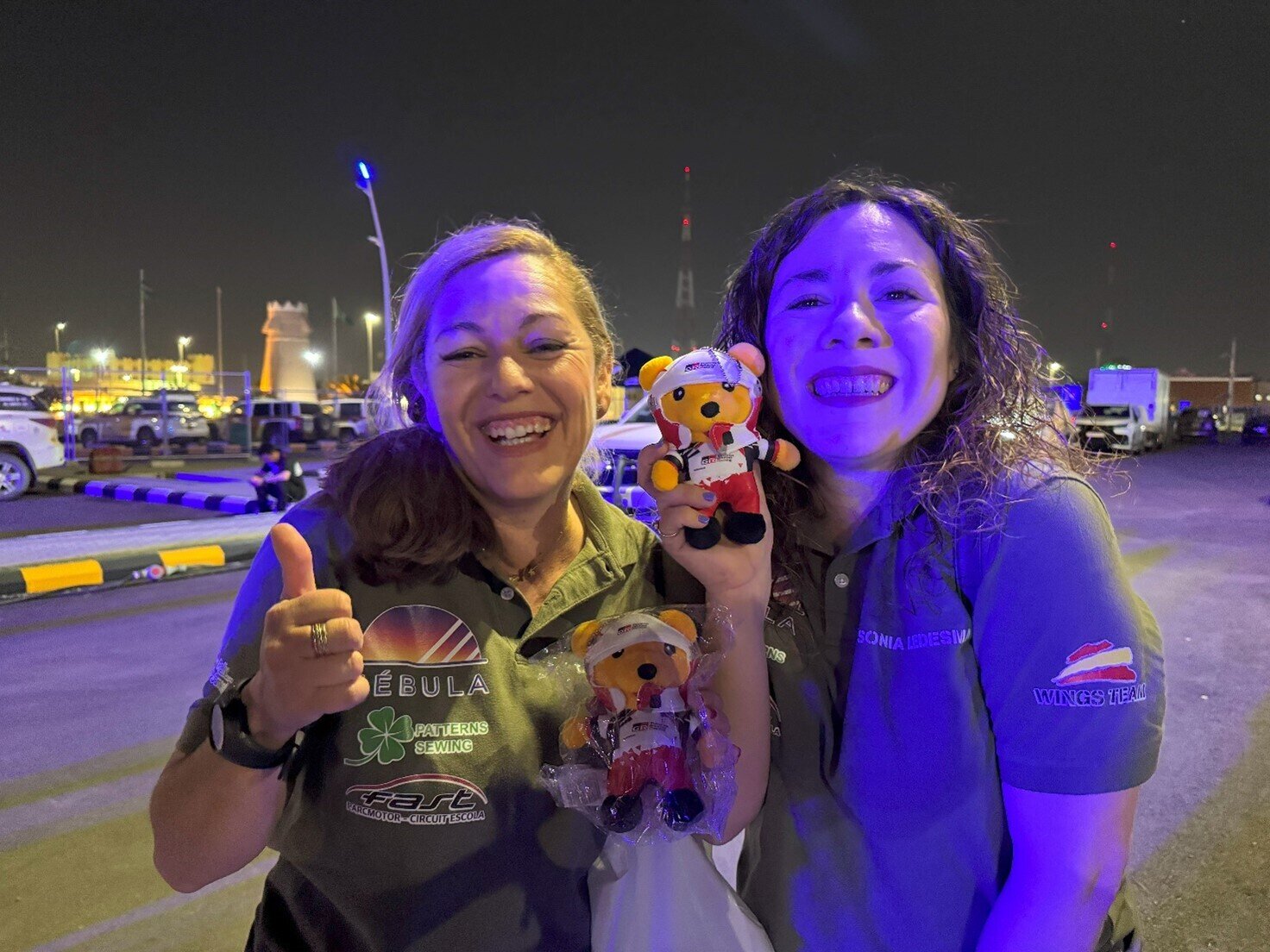
Back in Japan, we asked Kitahara what first comes to mind when she looks back on her Rally Jameel adventure. “The energy of the women who competed,” came her response.
Kitahara
Before taking part, my impression was that the event had been organized to encourage women in the Middle East to be more active, but the ladies I met were all free and powerful, and it felt as though the women themselves made Rally Jameel what it was.
It was really wonderful to see that every one of them is determined to take their life into their own hands.
The adventurers return
Including the training period, Kitahara and Nagayabu spent about ten days in Jordan and Saudi Arabia, becoming well acquainted with this world of sunburned brown. We invited them to reflect on the experience.
ーWhat are your honest impressions after completing Rally Jameel?
Nagayabu:
“It really made me appreciate the appeal of navigation rallies. I had thought of motorsports as a contest of speed, but here we could enjoy the scenery while heading for the finish line and use teamwork to overcome challenges. I saw firsthand how much fun that can be.”
Kitahara:
“I think there was something uniquely special about Rally Jameel.
I mean, if it were only for beginners, the event would not have the same excitement, and there’d be added difficulty.
In Rally Jameel, you find everyone from beginners to veterans, including some who have competed in the Dakar Rally. Experienced drivers supported the newcomers, and participants would ask each other, ‘How did you do yesterday?’ There was a really warm atmosphere of ‘let’s get through this together.’”
Nagayabu:
“The morning after we ran into trouble (on day two), everyone at breakfast was worried about us and asking if we were okay (laughs).”
Kitahara:
“Somehow it felt like we were one team, not rivals... The fact that they cared about us beginners, even when they gained nothing in return, made me really happy.”
ーHow were your first experiences of Jordan and Saudi Arabia?
Nagayabu:
“I was stunned by how open and accepting they were!
The moment we arrived in Jordan, we were welcomed by the Central Trade and Auto Company team. I could feel that they wholeheartedly wanted us to enjoy Jordan and the rally.”
Kitahara:
“Me too! We were nervous, but the Central Trade and Auto Company members welcomed us in as though we were part of the team. They were an invaluable presence on this trip.
Everyone at Abdul Latif Jameel Motors was also really kind. We did a bit of damage to the car we borrowed, but instead of blaming us, they were just pleased that we were enjoying the rally.
I had imagined that women in Saudi Arabia were sheltered and submissive, but in reality, they are all strong-willed and have things they want to do. My image of the country did a complete one-eighty.”
ーHow did the motorsport scene differ from Japan’s?
Nagayabu:
“Japanese motorsport fans are also passionate, but I think those watching for the first time might sense a bit of a barrier. In the Middle East, on the other hand, it seems to be a more accessible sport.”
Kitahara:
“Yes. In Japan, I imagine there are many people who feel that the barriers are too high and don’t know how they might go about watching, while in the Middle East it is something people enjoy more casually without overthinking things—‘Oh, it’s some kind of race, that’s great!’”
It seems taking on Rally Jameel led to many new discoveries.
Finally, when we asked what takeaways they had brought back to Japan, Nagayabu’s first words were, “The realization that nothing beats a Toyota, especially a Land Cruiser!”
Nagayabu
As we saw for ourselves, some terrains can only be traversed in a Land Cruiser. Now I can speak about its strengths and capabilities from actual experience.
In terms of my work, I am literally in the position of creating projects to help more women discover the appeal of sports cars and motorsports. This experience gave me many insights into how I can make such projects resonate from a female perspective.
“That cars are interesting,” answered Kitahara, before elaborating.
Kitahara
It made me want to learn more about cars. The Land Cruiser was great, but I’m ashamed to say that I couldn’t really explain what was different that made it so good.
Was it the engine, or the drivetrain? My interest in cars deepened, and I felt like I needed to know more, wanted to know more.
It also made me eager to learn more skills. I felt bad seeing how smoothly other competitors handled their tire changes. As soon as we returned to Japan, I gave a recap to my colleagues, and everyone eagerly agreed that, seeing as we work at GR, and Toyota, we should all be able to change tires. I would be pleased if, in some small way, our stories inspired the people around us to take a greater interest and learn more about motorsports and cars.
Where possible, I want to share the things we felt and experienced during this adventure, in the hope that those little sparks of inspiration will propagate, little by little, until they spread throughout the company and out into the world.
Where will their adventure lead them next?
